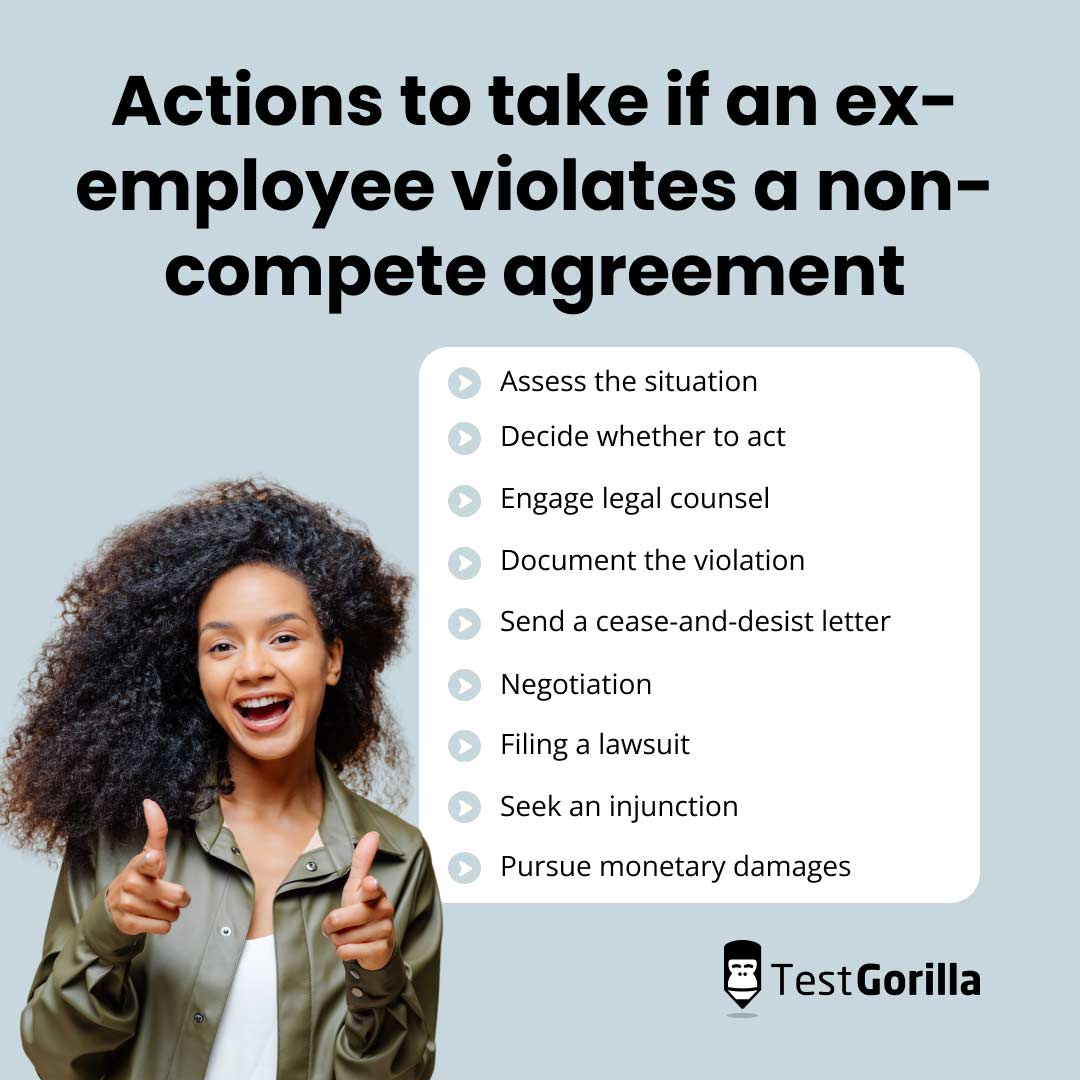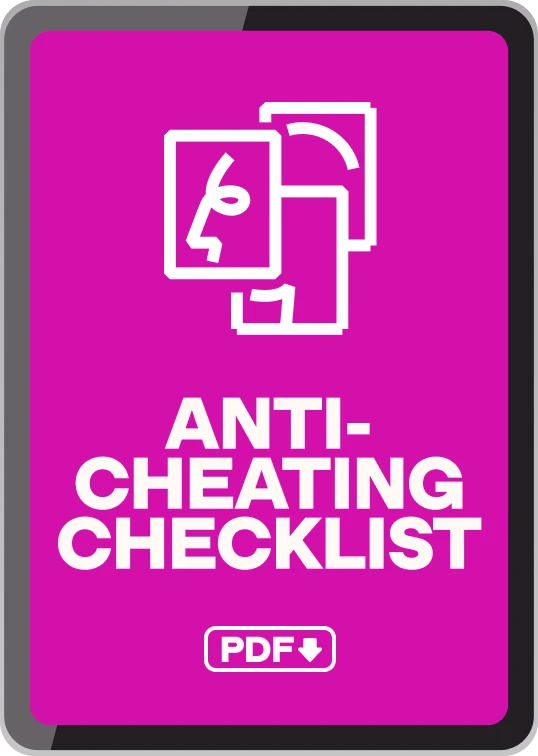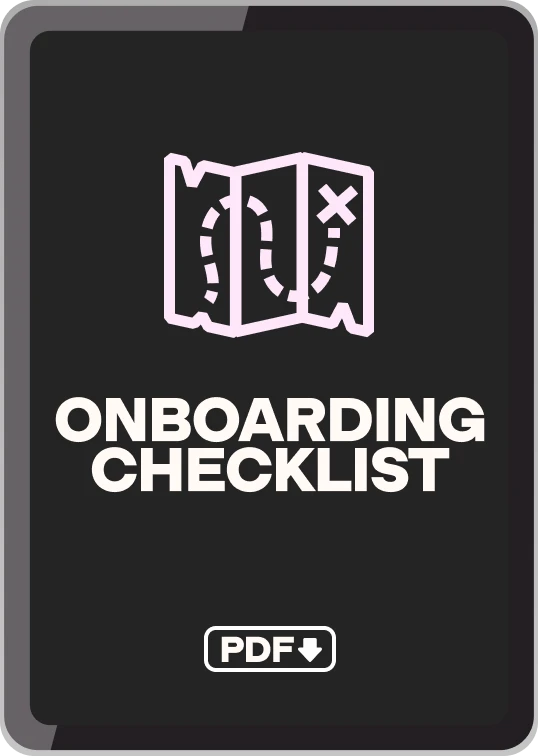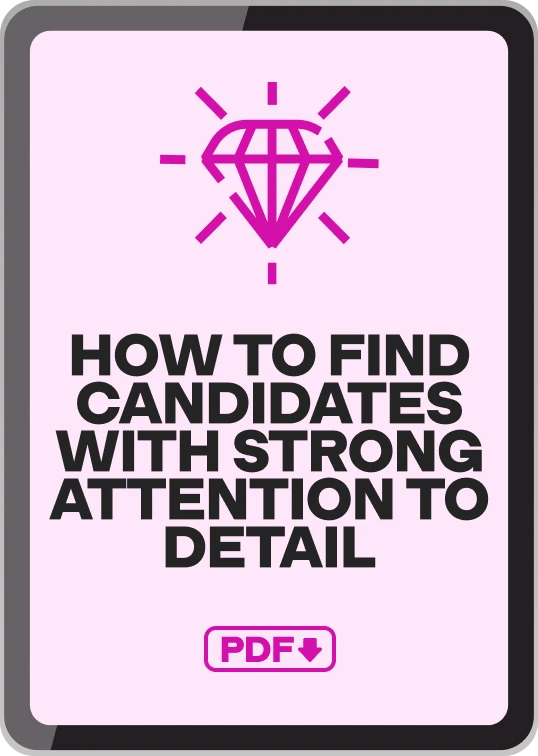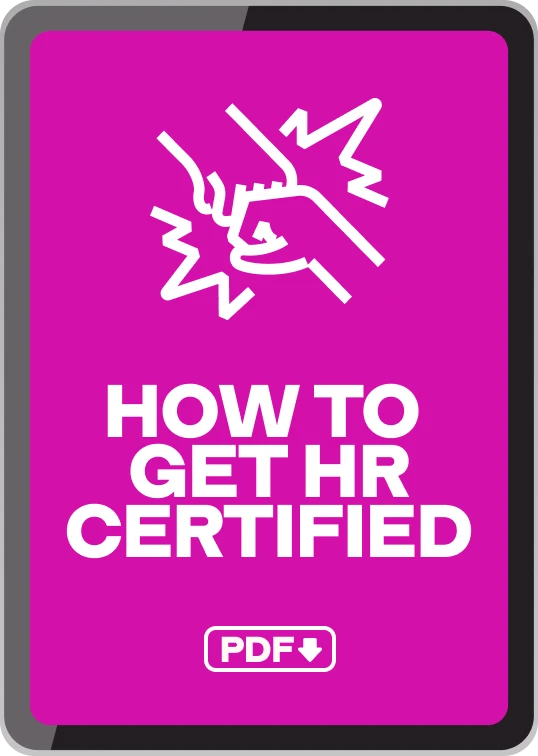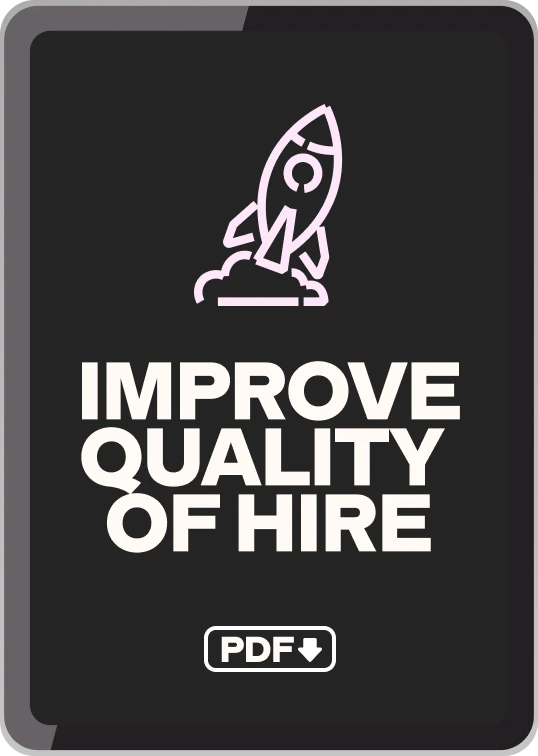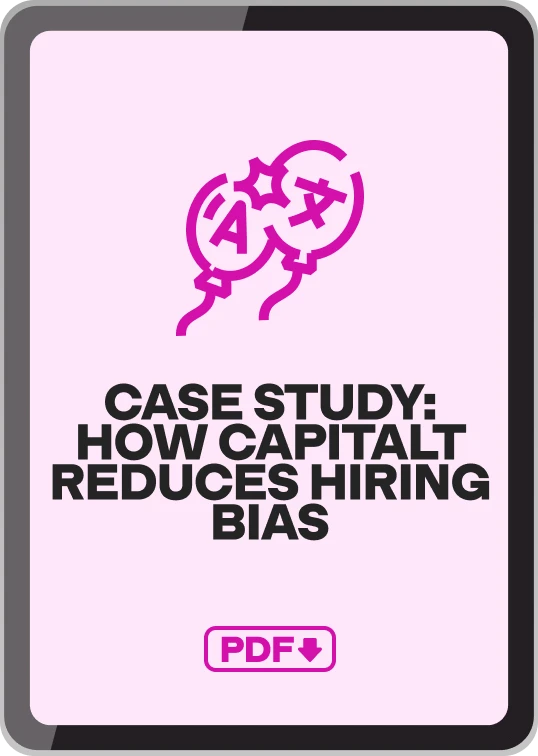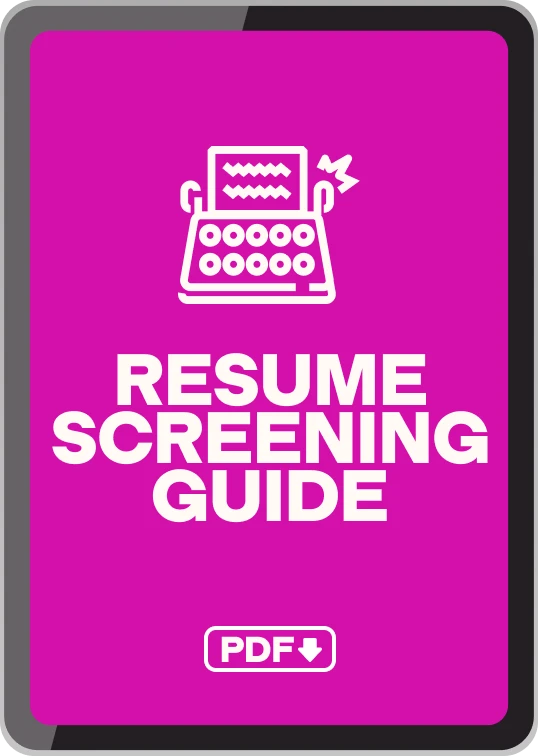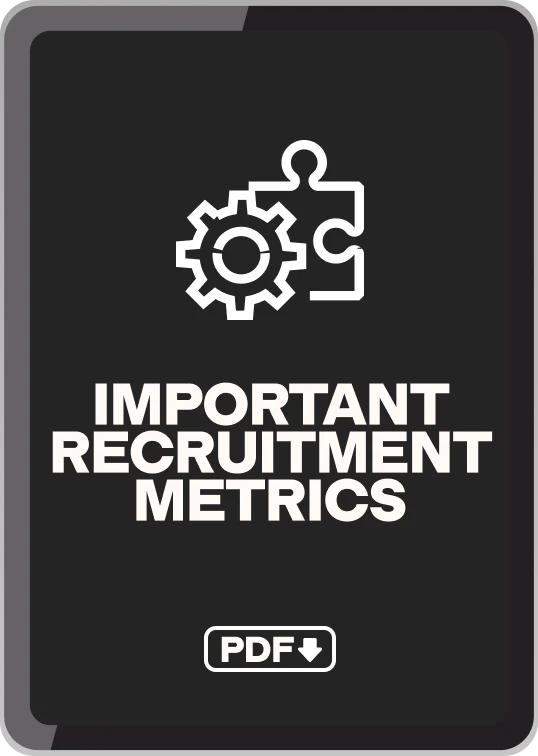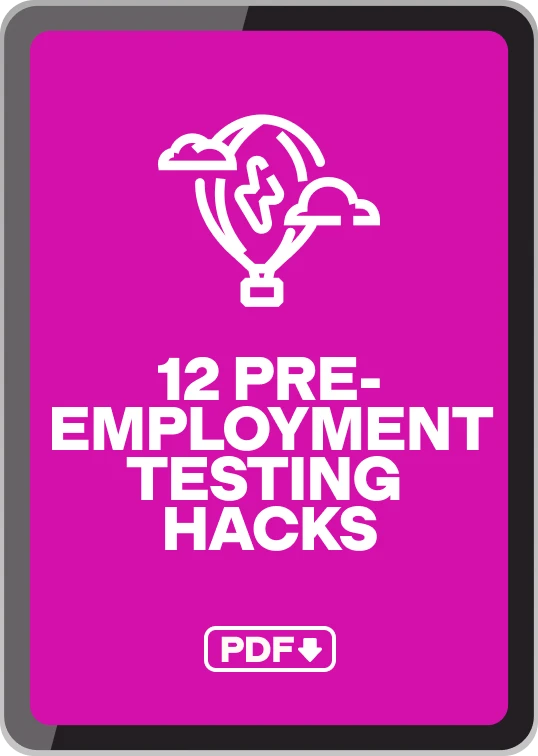How to know if an ex-employee violates a non-compete agreement
Non-compete agreements are a common sight in modern employment contracts. They’re designed to protect a company's interests and preserve competitive edge.
But it’s not always easy to tell when an ex-employee has violated their non-compete agreement. And when you believe a violation has occurred, you must take action to protect your business. This process also isn’t always straightforward.
In this guide, we'll explain how to know and prove a violation has happened. We also cover how local laws impact enforcement of non-compete agreements and what you should expect when you try to enforce your agreement.
Table of contents
- How non-compete agreements work
- Why non-compete agreements are important
- Can you enforce a non-compete agreement?
- Can an employee refuse to sign a non-compete agreement?
- How to prove a non-compete agreement is being violated
- Actions to take if an ex-employee violates a non-compete agreement
- Getting help from a non-compete dispute attorney in your state
- Tips for resolving non-compete violations through negotiations
How non-compete agreements work
A non-compete agreement prohibits a departing employee from taking certain actions that would compete with your business. In it, you must clearly define the prohibited actions. You must also typically outline the scope, duration, and geographic limits of these restrictions.
Non-compete agreements often restrict employees from starting similar businesses in the same geographic area. They might also prohibit them from going to work for a direct competitor for a limited time.
These agreements can stand alone, or they might be a clause within an employment contract. While employers often obtain them along with an employee’s new hire paperwork, you can propose a non-compete agreement at any time during a worker’s employment.
Why non-compete agreements are important
Non-compete agreements can help businesses protect their interests. For example, you can use non-compete agreements to:
Protect intellectual property (IP). By restricting employees from immediately joining a competitor or starting a competing business, you can reduce the risk of your proprietary knowledge falling into the wrong hands. Whether your business is a startup or long established, non-compete agreements can protect your business’ confidential information and trade secrets.
Maintain a competitive advantage. Non-compete agreements enable your business to retain the advantages you’ve worked hard to build over time. They prevent employees from using knowledge of your business operations to benefit a competitor or their own business venture.
While valuable, non-compete agreements can be difficult to enforce. State and federal laws often differ on how and when enforcement is possible. You must carefully craft any non-compete terms in your employment contracts or standalone contracts to ensure they are enforceable.
Can you enforce a non-compete agreement?
The enforceability of a non-compete agreement depends on several factors. Some states have adopted laws that strictly limit the enforceability of non-compete agreements. As of November 2023, California, Colorado, Minnesota, North Dakota, and Oklahoma have banned the use of non-compete agreements entirely, except for very narrow exceptions in limited industries. And laws covering non-compete agreements are continuously changing.
For businesses that use non-compete agreements in states that allow their use, enforceability relies on the overall reasonableness of the agreement. Whether a non-compete agreement is reasonable typically looks at the following factors:
Duration. The agreement may not restrict for an unreasonable amount of time. Most non-compete agreements run for a period of six months to two years. Courts often view longer periods as unreasonable unless there’s a very unique form of IP at stake – like a groundbreaking software algorithm.
Geography. This defines where a former employee can work or open a business. It’s usually defined as a distance surrounding your business or as a state or region. For example, restricting a sales leader from working for a direct competitor in the same area is common. This restriction enables your business to prevent a loss of competitive advantage.
Necessity. Regardless of what your non-compete agreement seeks to protect, you can only restrict competition to the extent necessary to protect legitimate business interests. For instance, say you restrict employees who have very limited access to IP from working with any competitors. A court would probably view this restriction as unnecessary to protect your business and wouldn’t enforce the agreement.
Can an employee refuse to sign a non-compete agreement?
As with any form of contract, neither an employer nor an employee can be forced to sign a non-compete agreement. It’s common for employers to make non-compete agreements a requirement of employment. Choosing to do this might mean not hiring or terminating the employment of someone who refuses to sign.
How to prove a non-compete agreement is being violated
Proving a non-compete violation can be challenging but is crucial for taking legal action. Some violations are obvious. For example, an employee who agreed not to start a competing business within 100 miles who is now running their competing business 10 miles up the road is clearly in violation. Most often, the violation is less clear and will require gathering evidence to prove the violation.
You can use these strategies to demonstrate that an ex-employee has violated their non-compete agreement.
Gather evidence ethically
Before you gather evidence, speak with legal counsel to ensure you obtain evidence ethically. Materials gained through deceit or other unscrupulous means may not be accepted as evidence in a legal proceeding.
Collect relevant documents
Gathering tangible evidence is essential. Make sure you have a complete non-compete agreement that the employee signed. Additionally, collect any correspondence or documents that might demonstrate they’ve used your IP or confidential information in their new job.
Monitor online activity
Monitoring an ex-employee's online presence can be revealing. Look at their professional profiles, such as LinkedIn. Watch for public posts that indicate they’re openly engaging in activities that conflict with the non-compete terms. However, be cautious about respecting privacy laws and not engaging in invasive monitoring.
Find eyewitness accounts
If possible, speak with current employees, clients, or business partners who may have interacted with the former employee in a manner that raises suspicions about the violation. Their firsthand accounts can be valuable in court.
Gather expert testimony
In a formal legal action, you’ll need industry professionals or legal experts who can provide their opinions on the significance of the ex-employee's actions and the potential damage caused to your company. Your lawyer can help identify qualified expert witnesses.
Maintain a clear timeline
Creating a chronological record of events is essential. This timeline should detail when the employee signed the non-compete agreement. Then, set out the date of the employee's departure and any actions or communications you believe breach the non-compete agreement.
Actions to take if an ex-employee violates a non-compete agreement
When you believe an ex-employee has violated a non-compete agreement, knowing where to start to address the situation is difficult. Follow these steps to handle a non-compete violation from start to finish.
Assess the situation
Start by carefully reviewing the agreement. Be sure the restrictions match your expectations and that the document is complete and contains both parties’ signatures. Next, consider which actions you believe the former employee has taken. Do you still believe those actions violate the agreement? Then continue to the next step.
Decide whether to act
How much damage will your ex-employee’s violation cause? While your first step was confirming the violation, your next step should be deciding whether enforcing the non-compete agreement is worth your effort.
For example, say your ex-employee goes to work for a competitor before the non-compete agreement expires. Do they have knowledge of trade secrets or confidential information that will actually harm your business? A court will only enforce the non-compete agreement if you can show that the violation has damaged your business. Given the costs of pursuing legal action, you should weigh carefully whether to continue or let it go.
Engage legal counsel
Consult with an attorney experienced in non-compete disputes in your state to discuss your legal options. A qualified lawyer can advise you on whether you’re likely to succeed in pursuing the violation. They can also review your non-compete agreement to ensure it's valid and enforceable in your jurisdiction.
Document the violation
Gather and put together the evidence of the employee's activities that breach the agreement. Use the guidelines we provided up above under “How to prove a non-compete agreement is being violated.” Follow your lawyer’s guidance to ensure you can use the evidence you’ve collected to prove the violation.
Send a cease-and-desist letter
Have your attorney draft a formal letter to the ex-employee and, if applicable, their new employer, demanding they stop the prohibited activities. This should include a clear statement of the steps you’ll take if they refuse your demand. Typically, this statement says you’ll file a lawsuit against them for violating the non-compete agreement. Sometimes a cease-and-desist letter is all you need to avoid a larger dispute.
Negotiation
Your lawyer might suggest discussing a settlement with the ex-employee to avoid protracted legal battles. Resolving the dispute through settlement can save on the costs and time needed to work through the legal system. However, you should feel that the terms of any settlement are favorable for your business.
Filing a lawsuit
If necessary, proceed with a lawsuit against the ex-employee. To prove a violation occurred, you’ll need to dedicate resources to the lawsuit. The lawsuit will likely require depositions, the exchange of written documentation through the legal discovery process, and appearances at hearings.
Seek an injunction
While a lawsuit is pending, you may want to request a court-issued injunction against the former employee. An injunction is a formal court order that prevents the ex-employee from continuing their competitive activities while the case is ongoing.
Pursue monetary damages
Should the court rule in your favor, you can request monetary damages. This simply means that the former employee must pay you for their violation. Monetary damages can cover lost profits, legal fees, and other costs incurred due to the violation.
Getting help from a non-compete dispute attorney in your state
Engaging a competent attorney with expertise in non-compete agreements is crucial in navigating disputes. If you previously engaged an attorney to create your non-compete agreements, you may want to return to them for representation in the dispute.
Since the legal requirements of enforcing non-compete agreements can vary substantially by state, look for an attorney in the state where the violation occurred. They should know the local labor and employment laws. They’ll assess the strength of your case and represent your organization effectively in negotiations and court proceedings.
Want to hire an in-house attorney or other legal advisor? Make sure you have the right knowledge on your team with a pre-employment testing platform like TestGorilla. Our detailed pre-employment tests can help you hire qualified corporate legal advisors and verify vital contract law knowledge.
Tips for resolving non-compete violations through negotiations
Many employers resolve non-compete violations through informal negotiations – before they pursue legal action. Here are some tips you should follow when attempting to resolve a dispute through negotiations:
Communicate professionally. Avoid being heavy-handed or confrontational. Anger or aggression in communication can escalate conflicts and make reaching a meaningful resolution more difficult.
Being flexible and open to compromise. This might involve agreeing to reduced restrictions in exchange for other compensation. Settling on mutually beneficial terms can prevent prolonged legal battles and protect your interests more efficiently.
Keep it confidential. Handling non-compete violations discreetly can protect your business interests. This can also lead to a smoother resolution since your ex-employee is more likely to settle if it protects their reputation.
Be aware of possible public perception. In case the violation does become public, consider how your current employees and others will view your handling of the situation. This should guide how you approach the situation.
Enforce and prevent non-compete violations effectively
Non-compete agreements play a pivotal role in maintaining the competitiveness of your organization. Knowing how and when to enforce a non-compete agreement is crucial if you want to maximize its effectiveness.
One safeguard against non-compete infractions is hiring workers with integrity. This can start with TestGorilla's pre-employment testing platform. TestGorilla’s 300+ pre-employment tests include personality and situational judgment tests that give you a clearer picture of each candidate’s work ethic and compatibility with your company’s values.
You can even customize assessments with behavioral questions designed to discern candidates' understanding and appreciation of sensitive business practices, reducing the likelihood of future contract disputes.
TestGorilla can be your first line of defense against non-compete violations. Start your free trial of TestGorilla today.
Related posts
You've scrolled this far
Why not try TestGorilla for free, and see what happens when you put skills first.
Latest posts
The best advice on pre-employment testing, in your inbox.
No spam. Unsubscribe at any time.

Hire the best. No bias. No stress.
Our screening tests identify the best candidates and make your hiring decisions faster, easier, and bias-free.
Free resources
This checklist covers key features you should look for when choosing a skills testing platform
This resource will help you develop an onboarding checklist for new hires.
How to assess your candidates' attention to detail.
Learn how to get human resources certified through HRCI or SHRM.
Learn how you can improve the level of talent at your company.
Learn how CapitalT reduced hiring bias with online skills assessments.
Learn how to make the resume process more efficient and more effective.
Improve your hiring strategy with these 7 critical recruitment metrics.
Learn how Sukhi decreased time spent reviewing resumes by 83%!
Hire more efficiently with these hacks that 99% of recruiters aren't using.
Make a business case for diversity and inclusion initiatives with this data.

